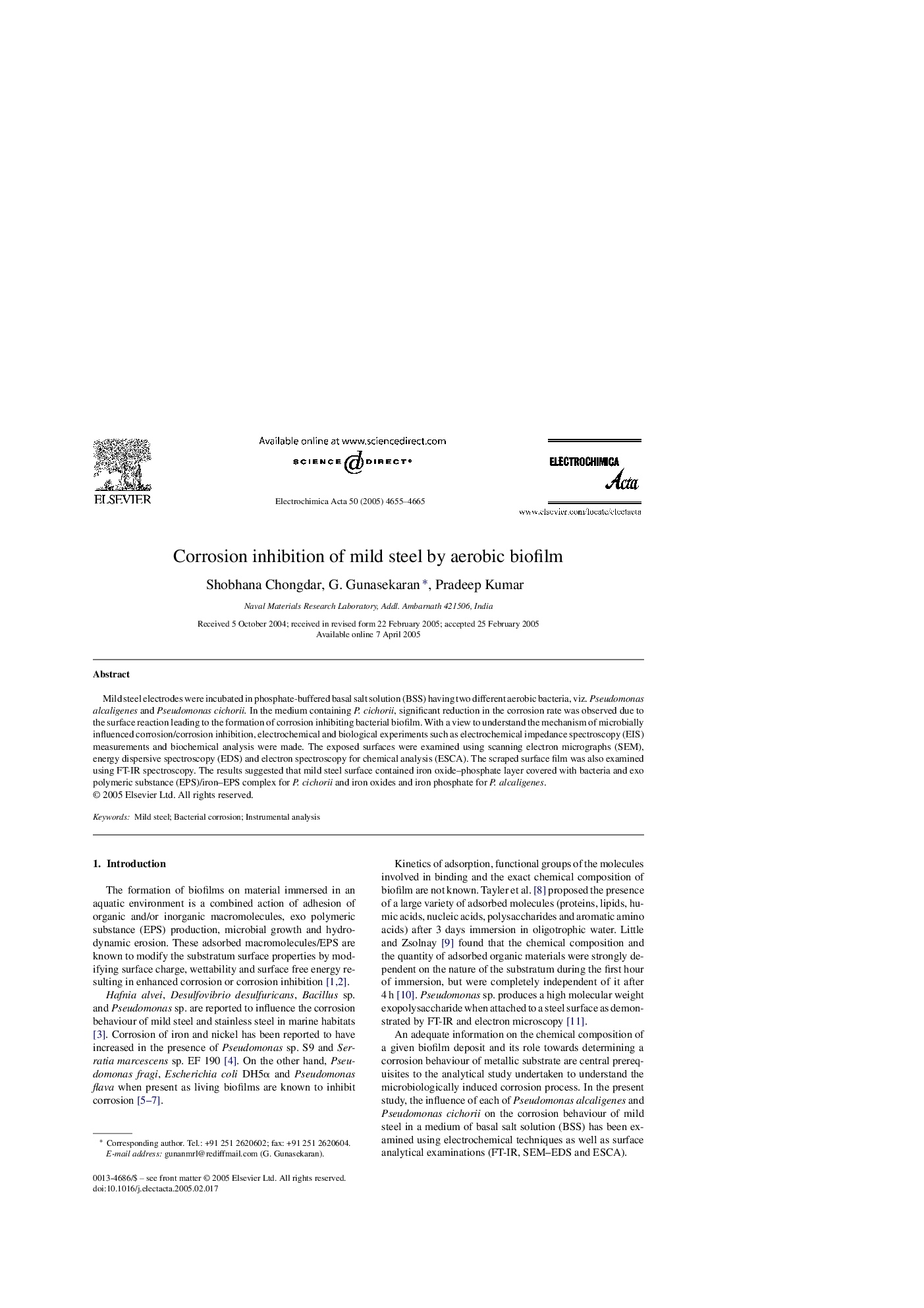| Article ID | Journal | Published Year | Pages | File Type |
|---|---|---|---|---|
| 196586 | Electrochimica Acta | 2005 | 11 Pages |
Mild steel electrodes were incubated in phosphate-buffered basal salt solution (BSS) having two different aerobic bacteria, viz. Pseudomonas alcaligenes and Pseudomonas cichorii. In the medium containing P. cichorii, significant reduction in the corrosion rate was observed due to the surface reaction leading to the formation of corrosion inhibiting bacterial biofilm. With a view to understand the mechanism of microbially influenced corrosion/corrosion inhibition, electrochemical and biological experiments such as electrochemical impedance spectroscopy (EIS) measurements and biochemical analysis were made. The exposed surfaces were examined using scanning electron micrographs (SEM), energy dispersive spectroscopy (EDS) and electron spectroscopy for chemical analysis (ESCA). The scraped surface film was also examined using FT-IR spectroscopy. The results suggested that mild steel surface contained iron oxide–phosphate layer covered with bacteria and exo polymeric substance (EPS)/iron–EPS complex for P. cichorii and iron oxides and iron phosphate for P. alcaligenes.
